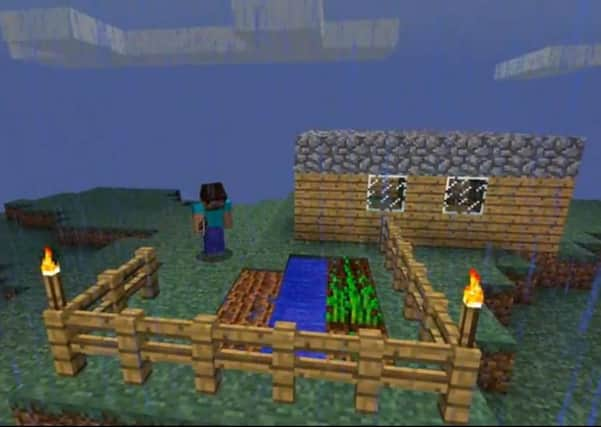Scotsman Games: Teaching firm teams with Microsoft


ComputerXplorers in Scotland will spearhead the Programming for Primaries initiative next spring, with the aim of inspiring the next generation of games developers.
The firm has been running programming and coding classes in 2006, offering youngsters lessons in 3D animation and modelling, as well as utilising well-known games such as Minecraft to foster “computational thinking, creativity and critical thinking.”
Advertisement
Hide AdAdvertisement
Hide AdNow, it has joined forces with Microsoft ahead of the event next spring, which it hopes will raise awareness of the need for early engagement when it comes to inspiring children to learn tech-based skills.
Focus on programming and resources
The inaugural Programming for Primaries week will take place between 24 and 28 March next year, shining a spotlight on programming and coding support and resources that are available to children and teachers in primary schools.
Microsoft’s Partners in Learning network is one of the first organisations to support the initiative and ComputerXplorers expects more to follow.
Nigel Toplis, managing director of ComputerXplorers, said such events were crucial in allowing children to develop an understanding and relish for coding at a young age.
He explained: “By the time they arrive at secondary school too many children have already decided that computing is not for them. Whether that self-selection is as a result of gender, economics, interest level or lack of exposure to inspiring opportunities, they miss out.
“It is vital to engage and inspire children at a much younger age. In spite of some progress in recent years too many children never grasp those vital skills that enable them to become creators and not just consumers of technology and set them on a path of great career options. “Those children will forever be on the wrong side of the digital divide.”
He added: “We share the belief that computer skills are central to economic progress at an individual level as well as at a national level. Those skills are just as valuable to children who go on to work outside of the technology sector as they are to children aspiring to be the next Mark Zuckerberg.”
Recognition
Advertisement
Hide AdAdvertisement
Hide AdComputing is a core part of the Technologies framework within the Curriculum for Excellence. While Scotland has received international recognition for its games-based learning (GBL) initiatives in the past, some have been critical of the way that early impetus has been lost.
Derek Robertson, the former national development officer for games based learning at Education Scotland, told Scotsman Games earlier this year: “The early optimistic days of 2005 and 2006 surrounding digital tech, when web 2.0 exploded on to the scene and GBL arrived, have gone now.”
Computer Xplorers believes that although schools continue to lead the way in teaching computing to primary age children, there can be a major challenge for some to meet the expectations and outcomes set out in the principles and practices of the framework.
Powerful
Steve Beswick, Microsoft’s senior director for education, said: “Having an idea and bringing it to life for the first time on screen is a really powerful experience for young people. Through programmes like Kodu, which helps children learn to code by building games, we can give them the skills to create anything they can imagine. At Microsoft, we do everything we can to support people taking that important first step towards realising their potential.”
Among the activities planned for Programming for Primaries week are free regional programming workshops either for teachers or for children.
Toplis added: “It may be a challenge for non specialist teachers in the primary sector to deliver computing and know where to go to find resources. The support is out there from a broad cross-section of the community. We hope Programming for Primaries week will provide a platform for like minded organisations to communicate the benefits of programming for younger children and help make teachers more aware of the rich seam of resources that are available for primary and pre-schools.”